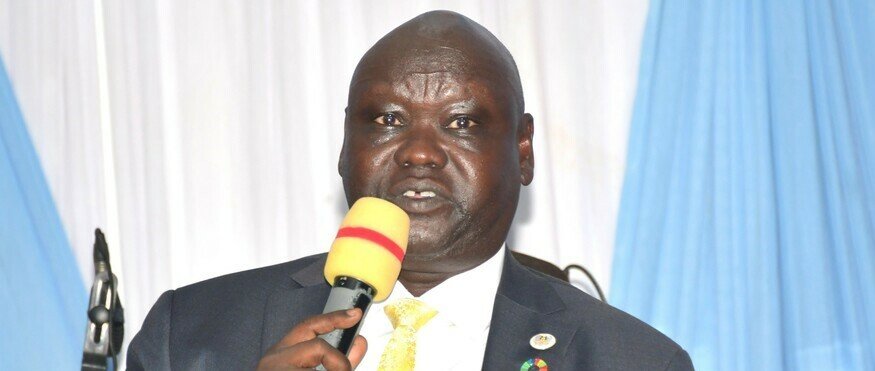By Matik Kueth
The High-Level Standing Committee overseeing South Sudan’s 2018 Peace Agreement has officially endorsed the interim leadership of the SPLM-IO faction in Juba, granting Peacebuilding Minister Stephen Par Kuol the authority to appoint individuals to government positions vacated by party members.
The decision was announced following a meeting of signatory parties held in Juba on Thursday. According to Cabinet Affairs Minister Dr. Martin Elia Lomuro, the recognition of Kuol’s SPLM-IO group is expected to accelerate the implementation of the peace deal and pave the way for national elections scheduled for 2026.
“The committee has validated the legitimacy of the SPLM-IO interim administration and authorized them to fill vacant positions across various peace agreement bodies,” said Dr. Lomuro in a government statement.
However, questions remain about whether key stakeholders, such as the Reconstituted Joint Monitoring and Evaluation Commission (RJMEC), will accept this recognition.
The move comes amid deepening divisions within the SPLM-In Opposition. Acting SPLM-IO chairman Oyet Nathaniel, currently in exile, denounced the development, labeling it an attempt to unlawfully restructure the transitional government. In a letter to African Union Commission Chairperson Mahmoud Ali Youssouf, Nathaniel reiterated his faction’s rejection of the SPLM-IO Juba group’s actions.
Meanwhile, Kuol welcomed the endorsement and revealed plans to invite international monitors to observe the implementation of the peace deal. He emphasized that several key actors, including the Revitalized Transitional Government of National Unity (R-TGoNU), the South Sudan Opposition Alliance (SSOA), and the Other Political Parties (OPP), support his leadership.
“All stakeholders have unanimously endorsed our legitimacy as the rightful representatives of the SPLM-IO under the R-ARCSS framework,” said Kuol. “We are committed to engaging with international partners and diplomatic missions in Juba to ensure the agreement is fully implemented.”
Despite Kuol’s efforts, some SPLA-IO commanders remain loyal to Dr. Riek Machar and Oyet Nathaniel, underscoring the party’s ongoing internal rift, exacerbated by political turmoil, violence, and Machar’s detention.
On April 7, Nathaniel suspended Kuol and several senior officials, including Federal Affairs Minister Losuba Wongo and NTLA members Deng Akon, Alier Samuel Ateny, Mustafa Gibson, and John Dak, accusing them of undermining party unity. In response, Kuol declared a formal split from Nathaniel’s leadership, dismissing the suspensions as illegitimate and reiterating calls for Machar’s release as essential to party cohesion.
The SPLM-IO’s internal crisis has left many of its officials in exile, fearing arrest amid the factional power struggle. On April 29, U.S. Ambassador to South Sudan Michael J. Adler urged South Sudanese leaders to return to dialogue, warning that a peace process excluding original signatories would not be viable.
Ambassador Adler called for the release of Dr. Riek Machar and other detained opposition figures, affirming Washington’s support for an inclusive peace process.
With a government mandate now in hand, Kuol begins the task of restructuring the SPLM-IO’s representation in national institutions, an assignment that may further test the resilience of South Sudan’s fragile peace.



